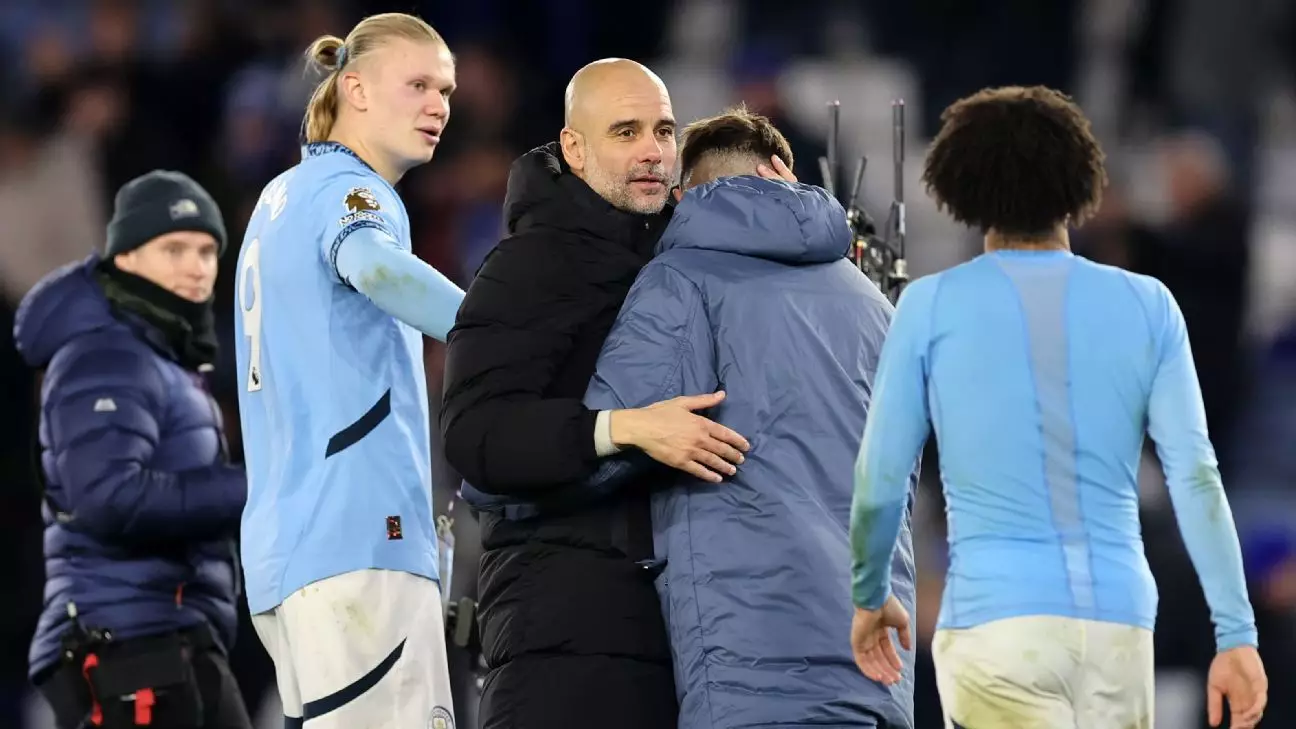Pep Guardiola’s Manchester City recently celebrated a much-needed win against Leicester City, breaking a five-game winless streak in all competitions. The 2-0 victory, however, provided not excitement but a feeling of relief for the team. Guardiola emphasized that while the match outcome was a step in the right direction, it fell short of the expectations set by past achievements. City’s performance showcased critical deficiencies as they faced a Leicester squad that, despite its relegation battle, managed to dominate possession and create multiple chances. This observation highlights a troubling trend in City’s play—ineffective ball control and an inability to capitalize on opportunities.
Despite the win, Guardiola expressed a stark reality for his team. Manchester City is currently marooned in fifth place in the Premier League, trailing far behind league leaders Liverpool by a staggering 11 points. With such a significant gap, Guardiola has openly dismissed the prospect of clinching a fifth consecutive Premier League title. His candidness is indicative of a larger issue: the team is unable to maintain the requisite intensity needed to succeed consistently for 90 minutes. The manager’s frank assessment of the current state of affairs points to deeper systemic issues that may require more than just tactical adjustments.
Guardiola’s acknowledgment of the psychological impact of recent defeats is particularly noteworthy. The confidence-shattering loss to Manchester United seems to have left a lingering effect on the team, complicating their performance in subsequent matches against Aston Villa and Everton. This mention of psychological strain underscores how vital mental fortitude is to any top-level team. A successful team not only relies on talent but also on the ability to regroup and bounce back from adversity. Guardiola’s frustration reflects a struggle not just with tactics but also with the emotional resilience of his players.
With over half the season remaining, Guardiola has illuminated an alternative focus: pursuing success in the FA Cup and securing a place in the top four. This shift in priorities may serve as a coping mechanism for both the team and its supporters, allowing them to redirect their energies toward achievable goals. Recognizing the value of staying competitive in other tournaments may foster renewed motivation among the players, as they are encouraged to hunt for wins elsewhere.
As Manchester City prepares for a crucial matchup against West Ham, they find themselves at a turning point. A six-day break could offer the team an opportunity to regroup and reassess their tactics. Guardiola’s candid discussions reflect an understanding that the road to recovery might be long and fraught with challenges, yet the ongoing commitment from players is essential. As City navigates this transitional season, the focus must shift to resilience and rediscovering the championship mentality that has defined the club in past years. The combination of tactical reassessment and psychological rebuilding may prove pivotal in reclaiming their status as title contenders.

